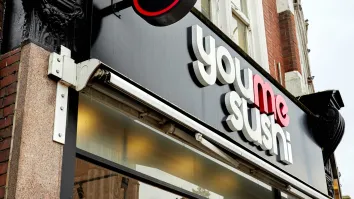Solving the perils of an unwanted director or shareholder
Gannons Solicitors founder Catherine Gannon provides advice in the wake of trouble at the top for various operators across hospitality and retail.
It was announced in April that Dan Doherty, TV chef and former judge on the BBC programme Britain’s Best Home Cook, had officially resigned as a Director at The Royal Oak gastropub in Marylebone – a company he co-owned. Doherty voluntarily left his gastropub last November whilst an external firm, HR180, conducted an investigation into allegations of sexual harassment, eventually returning as Executive Chef. However, in January, Company filings revealed that Doherty’s directorship was terminated by Urban Inns Limited, the pub’s owners.
A swift response is what’s required in the event of a scandal
Scandals within business can have devastating effects – and the way in which operators deal with these scandals is crucial. News travels fast with social media and in the case of Doherty, it spread like wildfire. This means that operators can almost instantly suffer losses through damage to goodwill. Disputes may also arise between the directors and/or shareholders which impact on the way the company is managed, causing a loss of strategy or direction. Additionally, there could be a potential rift between other key stakeholders in the company, which threatens the successful continuation of a business. The key here for operators, is to act with speed and efficiency in the wake of a scandal.
Creating distance
Doherty had his fingers in a number of lucrative pots. The chef was set to appear in the 2nd series of Britain’s Best Home Cook, but announced in January that “he had decided to step away”. However, it didn’t end there. Rhubarb, the catering firm he was partnering with for his first New York City opening, announced: “We have decided to end our consultancy agreement with Dan Doherty in view of the allegations of impropriety made against Mr Doherty.”
In another example, retail billionaire, Sir Philip Green, was named in Parliament as the leading businessman accused by a newspaper of sexual and racial harassment. He is a shareholder and director of many companies and some of those companies wasted no time in distancing themselves from him. He is no longer a shareholder in Simon Cowell’s company, Syco Holdings Limited, following the sale of shares for a reported £10m.
What are the steps required to remove a shareholder?
Assuming the disgraced shareholder does not sell voluntarily, the company will have to find a way to compulsorily acquire the shares, assuming they can achieve sufficient shareholder approval.
Compulsory buyback of shares by the company
Compulsory purchases are usually dealt with by a company share buyback. The structure, process and considerations in connection with a company share buyback differ depending upon whether the company is a public (a market purchase) or private (an off market purchase) limited company and the documentation in place.
For example, a public company must ensure its compliance with the City Code on Takeovers and Mergers, the Listing Rules and the Disclosure Guidance and Transparency Rules. Also, a particular investor may have specific guidelines that it requires a company to follow. It is essential that, following any share buyback in a public company, a sufficient number of shares must remain in the hands of the public. A market purchase must be approved by a resolution of the company and an announcement made via a Regulatory Information Service as soon as possible of any decision by the board to submit to its members a resolution authorising to buy back its own equity shares. The buyback must also be approved at a general meeting. The process for private companies is less complicated.
What if the shareholder doesn’t want to sell their shares?
Just because a party may be refusing to sell their shares doesn’t necessarily mean the operator is stuck. Check the articles of association of the company and any shareholders’ agreements. Are there any provisions which require shares to be compulsorily transferred following a particular event? For example, a shareholder being required to transfer any shareholding in a company if the shareholder has brought the company into disrepute or is being investigated for criminal wrongdoing. These provisions could provide the other shareholders with some assistance.
Removal as a Director
But what if the shareholder is also a board director? How can they be removed? There are several ways to remove a director, such as:
- by their resignation;
- under the company’s articles of association;
- by resolution of the shareholders;
- by a court order; or
- by their death.
Forcing the removal of a Director
The Companies Act 2006 allows for the removal of a director before a contract ends. This right applies regardless of any agreement between the director and the company (for example, the terms of a director’s service agreement). It is worth noting that whilst this may be the case, this does not stop the director from being paid or from bringing a claim for unfair dismissal.
The process for the successful removal of a Director
The process for shareholders to remove a director is prescriptive:
- A resolution must be passed at a meeting (and cannot be passed with a written resolution)
- Special notice is required of a resolution to remove a director or to appoint somebody instead of a director at the meeting at which he or she is removed
Not keeping to the required timeframes will render any resolution ineffective. It is therefore essential that the correct procedures are followed.
Regulatory notices
A company with a premium listing of equity shares must also notify a Regulatory Information Service as soon as possible (and in any event by the end of the business day following the decision or receipt of notice of the change) of any change to the board, including removals, retirements, resignations or important changes to the role, functions or responsibilities of directors.
Hospitality moves at a fast pace and the hard won reputation and respect for a brand, can be won or lost just as quickly. To avoid a crisis situation, operators are advised to keep a vigilant eye on their businesses to ensure they are compliant and their boards clean.
























